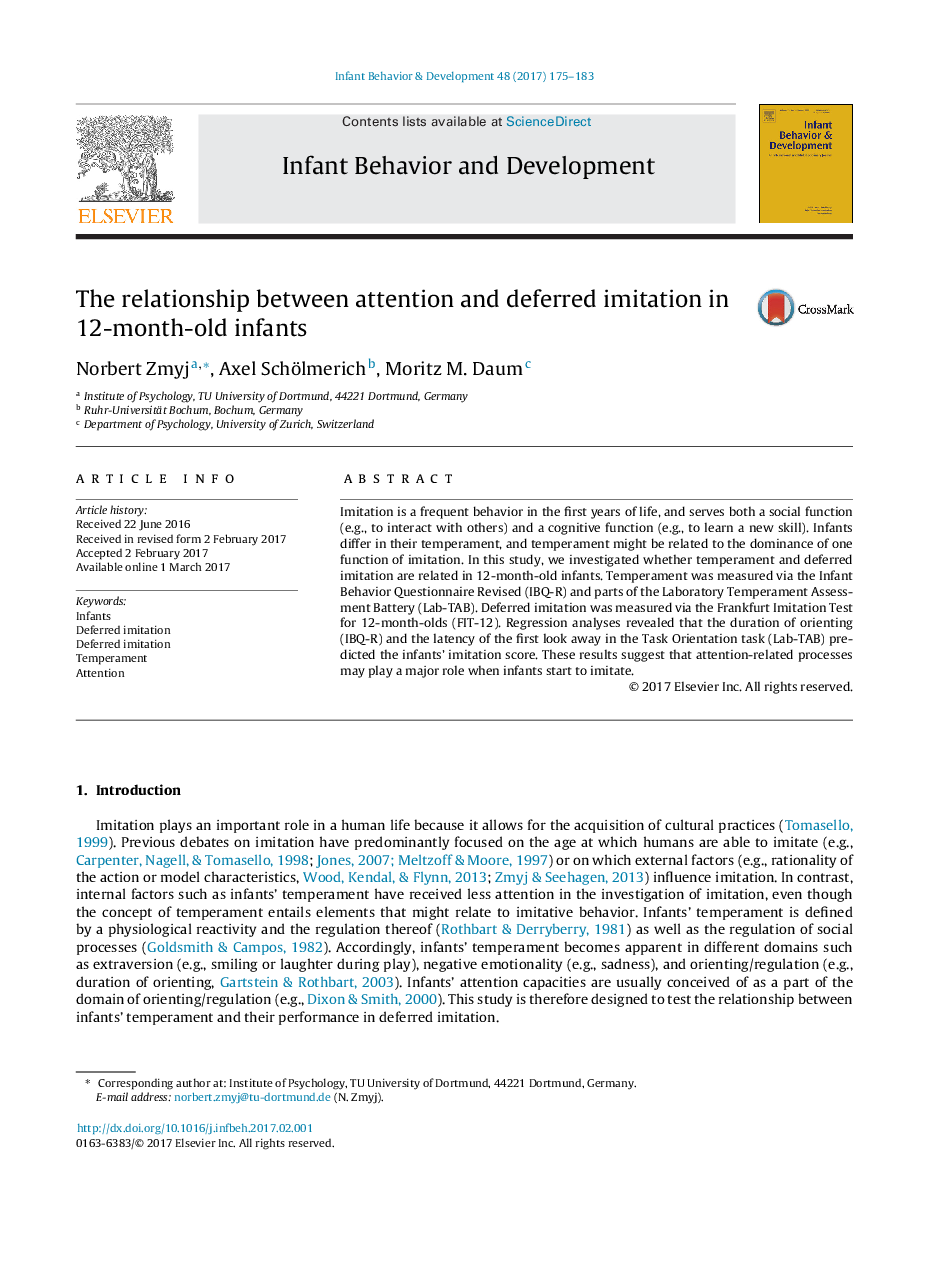| Article ID | Journal | Published Year | Pages | File Type |
|---|---|---|---|---|
| 5039818 | Infant Behavior and Development | 2017 | 9 Pages |
â¢The relation between 12-month-olds' temperament and deferred imitation was assessed.â¢Temperament was measured via questionnaire and direct observation.â¢Imitation was related to the duration of attention in both temperament measures.â¢Imitation at 12 months is influenced by attention-related processes.
Imitation is a frequent behavior in the first years of life, and serves both a social function (e.g., to interact with others) and a cognitive function (e.g., to learn a new skill). Infants differ in their temperament, and temperament might be related to the dominance of one function of imitation. In this study, we investigated whether temperament and deferred imitation are related in 12-month-old infants. Temperament was measured via the Infant Behavior Questionnaire Revised (IBQ-R) and parts of the Laboratory Temperament Assessment Battery (Lab-TAB). Deferred imitation was measured via the Frankfurt Imitation Test for 12-month-olds (FIT-12). Regression analyses revealed that the duration of orienting (IBQ-R) and the latency of the first look away in the Task Orientation task (Lab-TAB) predicted the infants' imitation score. These results suggest that attention-related processes may play a major role when infants start to imitate.
